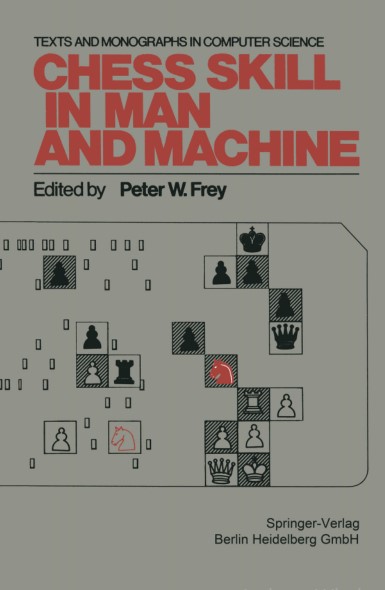
Free Download Chess Skill in Man and Machine by Peter W. Frey
English | PDF | 1977 | 227 Pages | ISBN : N/A | 24.3 MB
Chess is a fascinating game. The rules are clearly defined and yet the game is still complex enough to provide the flavor of a real-world problem. After several centuries of intensive study and play, chess continues to challenge the intellect of novice and expert alike. The availability of a rich historical record makes it possible to evaluate chess skill and to analyze different styles ofplay. For these reasons, chess has become an attractive research environment for studying intel- lectual skill.
In the Fall of 1974, a graduate seminar was arranged at Northwestem Univer- sity to study chess skill f r ~ m both a human and mechanical perspective. The idea was to examine a specific intellectual skill in depth by applying the resources and knowledge which were available from several disciplines. The participants in this endeavor were psychologists, computer scientists, and skilled chess players. The agenda included regular dass meetings as weIl as guest lectures from visit- ing scholars who had been invited to join uso Among our guests were Hans Berliner and Neil Chamess from Camegie-Mellon University, Eliot Hearst and Charles Kalme from Indiana University, Monroe Newbom from Columbia Uni- versity, Larry Harris from Dartmouth, Russell Church from Brown, and Donald Michie from the University of Edinburgh. We even had a surprise visit one weekend from David Levy. I think he suspected that we were laying plans to prevent hirn from winning his famous wager.
A special demonstration was arranged during Berliner’s visit. A microphone and public address system were set up in the Norris University Center so that Hans could play the Northwestem chess program and simultaneously make comments about the game to a live audience of 250 people who were located in an adjacent room. A TV monitor was provided so that the audience could instantly see the computer’s move and the reply it expected from Berliner. Hans treated the audience to an eloquent demonstration of the horizon effect, predict- ing the machine’s blunders in advance. The ob servers listened to Berliner’s commentary with enthusiasm and greeted his emergence from the playing room after 3 1 h hours of competition with a standing ovation. It was an unusual but surprisingly effective educational experience for all.
When the Fall tenn came to a c1ose, we judged our unique venture as an immense success. The one regret we had was that only a small number of people had the opportunity to participate. After receiving quite a few outside inquiries about our activities, I discussed the possibility of publishing arecord of our deliberations with the other participants. Since a c1ear majority favored the project, I made the appropriate arrangements. The present volume represents the fulfillment of these plans.










Leave a Reply
You must be logged in to post a comment.